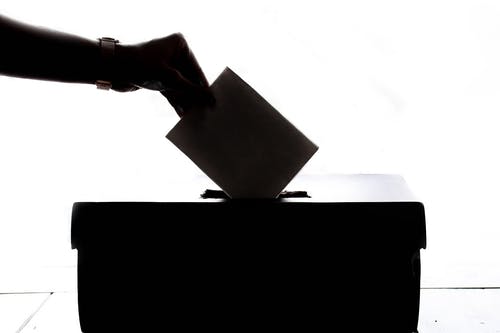According to our research “Stepping Up and Standing Out,” women are inspired by other…
#EnforceThe19th

There have been a number of articles written about the struggle for women’s suffrage this summer. Many have quoted the first section of the Nineteenth Amendment, “The right of citizens of the United States to vote shall not be denied or abridged by the United States or by any State on account of sex.” But few have quoted the second section, “Congress shall have the power to enforce this article by appropriate legislation.” In the one-hundred years since the amendment was ratified in August 1920, Congress has never used that significant power.
Following the November 1920 presidential election, Black suffragists like Mary Church Terrell asked for white suffragist support to fight against voter suppression in the South. And they were joined in that request by some white suffragists like Mary White Ovington, a co-founder of the NAACP. At the February 1921 National Woman’s Party (NWP) convention, Black suffragists argued that if the NWP failed to respond to voter suppression in the South, its failure would, “permit [the Nineteenth] amendment to be so distorted in its interpretation so as to lose its full power and effectiveness.”
As I describe in my recent book Constitutional Orphan: Gender Equality and the Nineteenth Amendment, the NWP did lobby for the introduction of Congressional enforcement legislation in December 1920. Aimed at making it a crime for state and local officials to deny women the vote, the bill was modeled on civil rights legislation enacted by Congress pursuant to the Fourteenth and Fifteenth Amendments. But the legislation introduced pursuant to the Nineteenth Amendment’s enforcement clause was never enacted. By May 1921, the NWP quietly stopped its lobbying effort, concerned about white southern Congressional support for its newly proposed Equal Rights Amendment. Southern politicians’ resistance to the specter of a “Second Reconstruction” and federal intervention in state elections spelled the legislation’s demise. It died in committee. As predicted by Black suffragists, the Nineteenth Amendment never realized “its full power and effectiveness” in the decades that followed.
Today, we still see voter suppression across the United States. State laws that prevent women from voting because they limit access to early voting options, that require voter ID with an identical name match, or that require fees and fines to be paid prior to voting, have a disparate impact on women. Such laws create a heavier burden on female voters because women still shoulder the disproportionate burden of child and elder care, have more name changes, and earn less than men. And these laws have an even more significant impact on the ability of women of color to vote, due to the intersection of sexism and racism.
Enacting new voting rights legislation pursuant to the Nineteenth’s enforcement clause would amplify the political voices of all women, especially women of color. It would fulfill both parts of the Nineteenth Amendment’s original promise – that voting would not be denied or abridged on account of sex and that Congress would enforce that promise. #EnforceThe19th!






